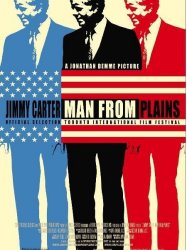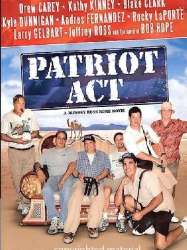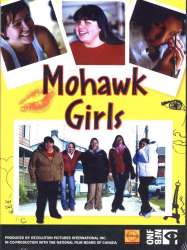Decoding Deepak is a american film of genre Documentary released in USA on 11 march 2012 with Oprah Winfrey
Decoding Deepak (2012)

If you like this film, let us know!
Decoding Deepak is a 2012 feature-length documentary film directed by Gotham Chopra about his father Deepak Chopra. It was released in the United States in theaters, on video on demand and digital platforms, on October 5, 2012. It was distributed by SnagFilms, a digital distributor of independent films.
The film is dedicated to David Simon M.D. (1951-2012), close friend of the Chopra family who died of a brain tumor on January 31, 2012.
^ Dan Harris and Ely Brown (Sep 27, 2012). "'Decoding Deepak': Deepak Chopra's Son's Intimate Portrait". ABC News, 'Good Morning America'. Retrieved 2014-08-05.
^ Business Wire via Yahoo Finance (June 25, 2012)
^ David Simon obituary
Actors
Comments
Leave comment :
Suggestions of similar film to Decoding Deepak
There are 28 films with the same actors, 8969 with the same cinematographic genres, 2422 films with the same themes, to have finally 70 suggestions of similar films.If you liked Decoding Deepak, you will probably like those similar films :
 , 2h
, 2hDirected by Jonathan Demme
Origin USA
Genres Documentary
Themes Films about writers, Documentary films about historical events, Documentaire sur une personnalité, Documentary films about politics, Political films
Actors Larry King, Jonathan Demme, Jay Leno, Steve Cochran
Rating71%






Katy Perry: Part of Me (2012)
, 1h35Origin USA
Genres Documentary, Musical
Themes Films about music and musicians, Films about television, Documentary films about business, Documentary films about the film industry, Documentary films about music and musicians, Documentaire sur une personnalité, Musical films, Autobiographical documentary films
Actors Katy Perry, Russell Brand, Darren Criss, Shannon Woodward, Judy Garland, Adele
Rating60%





The film features interviews with Perry and her loved ones documenting the trajectory of her life, containing various clips from her childhood and teenage years as well as her career and personal life (ranging from December 1999 to March 2012). The film is spliced with performances from her worldwide California Dreams Tour, which had 127 concerts from February 20, 2011 to January 22, 2012. Most of the performances were recorded on November 23, 2011, at the Staples Center in Los Angeles, but also included performances in Tokyo and São Paulo. Some of her friends such as Rihanna, Lady Gaga, and Jessie J make cameos in the film. The documentary includes scenes of Perry dealing with the breakdown of her marriage with English actor/comedian Russell Brand.

Spin (1995)
, 56minutesGenres Documentary
Themes Pregnancy films, Films about sexuality, Documentary films about historical events, Documentaire sur une personnalité, Documentary films about politics, Documentary films about health care, Political films
Actors Jon Voight, Larry King
Rating78%






They Were Not Silent (1997)
, 30minutesGenres Documentary
Themes Films about racism, Films about religion, Films about the labor movement, Documentary films about racism, Documentary films about law, Documentary films about war, Documentary films about historical events, Documentaire sur une personnalité, Documentary films about politics, Documentary films about religion, Political films, Films about Jews and Judaism, Documentary films about World War II

Balancing Acts (2005)
Origin USA
Genres Documentary
Themes Circus films, Films about religion, Documentaire sur une personnalité, Documentary films about religion, Films about Jews and Judaism
Rating68%






We Are Dad (2005)
Genres Documentary
Themes Films about adoption, Films about children, Films about families, Medical-themed films, Films about sexuality, LGBT-related films, Documentaire sur l'homosexualité, Documentaire sur une personnalité, Documentary films about health care, LGBT-related films, HIV/AIDS in film, LGBT-related film
Rating79%






Hitler's Reign of Terror (1934)
, 55minutesOrigin USA
Genres Drama, Documentary
Themes Politique, Documentary films about war, Documentary films about historical events, Documentaire sur une personnalité, Documentary films about politics, Hitler, Political films, Documentary films about World War II
Rating52%





As the picture opens, a re-enacted phone call featuring reporter Cornelius Vanderbilt, Jr. in Germany, and narrator Edwin C. Hill in New York is depicted. Then a parade of people carrying torchlights in Berlin, where Jewish works and other political books are burned. Vanderbilt meets with Hill, and then flies out of the country. Hill talks with Vanderbilt about the problems in his country, then a re-enacted interview between Adolf Hitler and Vanderbilt. During a viewing of World War I battle footage, Hitler's home town, Leonidad, Austria, and his parents' graves are pictured. Vanderbilt goes to Vienna, to see Chancellor Dollfuss, and he films several Austrian Nazi riots during a parade. In a re-enactment, Vanderbilt's passport is stolen, and there are several shots of Nazis abusing Jews. In yet another re-enactment, Vanderbilt interviews Crown Prince Wilhelm, and more books are burned. Helen Keller talks to an interviewer about her books, which were burned by the Nazis. Then a conversation Vanderbilt, Kaiser Wilhelm II in Doorn, Holland, and Prince Louis Ferdinand had is re-enacted. Actual anti-Nazi speeches given by prominent Jews and some Gentiles are shown and the Nazis are shown trying to alter the Bible. In the final scene, Congressman Samuel Dickstein of New York and Hill give speeches directly to the audience, explaining the dangers of Nazism.

Patriot Act (2005)
Directed by Jeff Ross
Genres Comedy, Documentary
Themes Films about music and musicians, Documentary films about music and musicians, Documentaire sur une personnalité, Musical films
Actors Drew Carey, Kathy Kinney, Blake Clark, Kyle Dunnigan, Larry Gelbart
Rating70%






Mohawk Girls (2005)
Directed by Tracey Deer
Genres Comedy-drama, Documentary
Themes Documentaire sur une personnalité
Rating55%





 , 1h19
, 1h19Origin USA
Genres Documentary
Themes Films about writers, Documentaire sur une personnalité
Actors Hubert Selby, Jr., Henry Rollins, Lou Reed, Jared Leto, James Remar, Darren Aronofsky
Rating73%





 Connection
Connection



